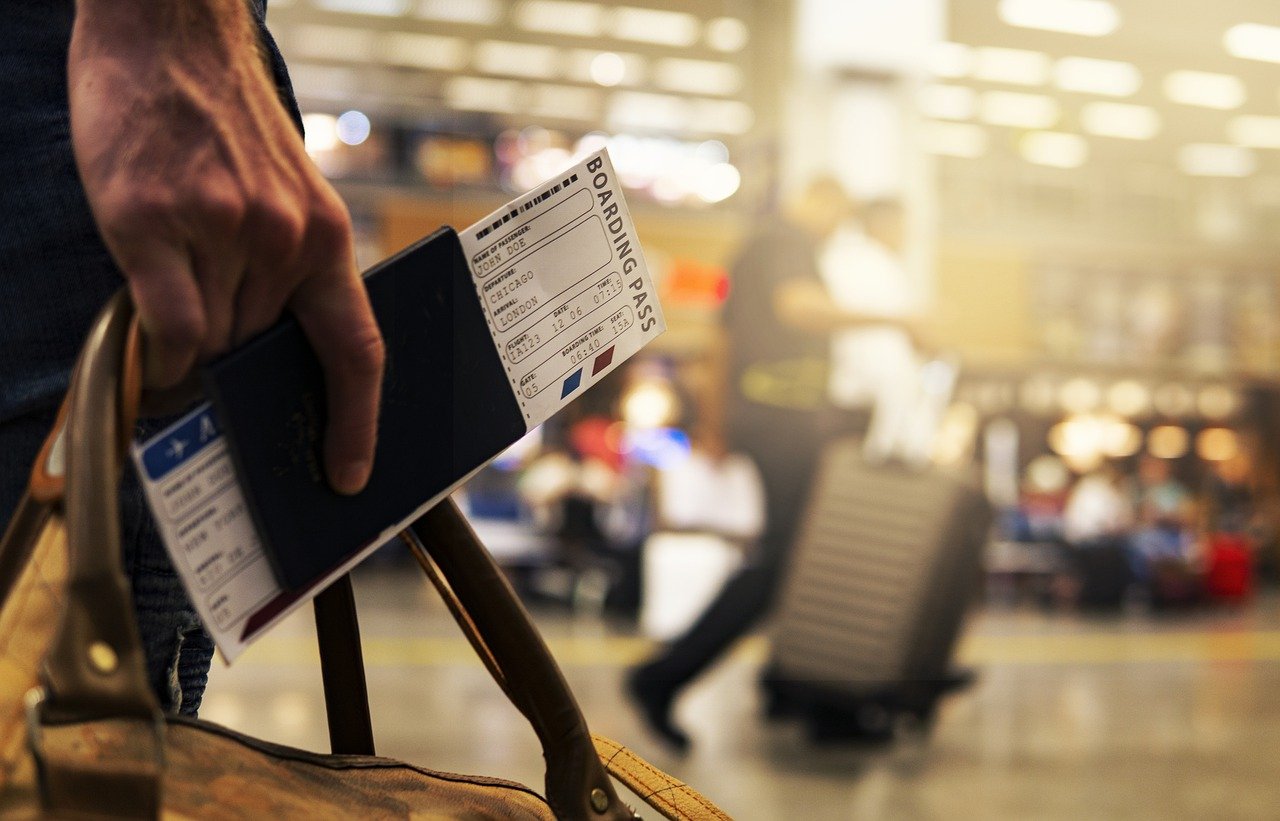Image: Joshua Woroniecki on Pixabay
In this post we’re going to look at phrasal verbs with SET.
Set it up!
Set up has two meanings. It can mean to establish or organize something, for instance a charity or a club.
- We set up a charity to help people whose houses were destroyed by the flood.
- I need to set up a better system for keeping track of my expenses!
- The city set up a program to provide job training for homeless people.
It can also mean to literally erect something, or put something together physically.
- I love buying furniture from Ikea, but I’m not very good at setting it up!
- Let’s set up a table and chairs in the garden and have lunch outside!
- If you have an outdoor wedding, it’s important to set up a tent in case it rains.
This phrasal verb is separable. That means that if the direct object is a noun, that noun can separate the main verb (set) from the particle (up).
- I don’t want to set the furniture up. I don’t want to set up the furniture.
- Who is going to set the charities up? Who is going to set up the charities?
But, if the direct object is a pronoun, it must separate the verb from the particle. (You can’t say *set up it or *set up them.)
- I don’t want to set it up.
- Who is going to set them up?
Could You Set Me Up With Your Friend?
If you add with, you have the phrasal verb to set (someone) up with (someone/something.) If you set someone up with another person, that means that you introduce two people romantically.
- Could you set me up with your friend? She seems really nice.
- You want me to set you up with my brother?
- I never set friends up with other friends. It can create too many problems.
If you set someone up with a thing, that means the same thing as provide with.
- My friend had an extra cell phone, so he set me up with it.
- The server asked, “Can I set you up with something to drink before you order?”
- The company set every employee up with a new laptop.
Don’t Set the Smoke Alarm Off!
To set off means to start something, as in a device or machine.
- Whenever Jim cooks, he sets off the smoke alarm, so we need to open all the windows.
- Someone set off the alarm, and the police are on their way.
- There was a fire, but it set off the sprinklers right away and was quickly contained.
Setting Out or Off For Adventure
To set out for [a place] means to leave for, or begin to go to. Usually it has the sense of starting on a long journey.
- The explorers set out for the island in early spring, and didn’t arrive until summer.
- Traffic was awful. I set out for work at 8am and didn’t get there until 11am.
- When do you think the first humans will set out for Mars?
You can replace out with off and have the same meaning.
- The explorers set off for the island in early spring, and didn’t arrive until summer.
- Traffic was awful. I set off for work at 8am and didn’t get there until 11am.
- When do you think the first humans will set off for Mars?
That’s Going to Set Us Back
To set (someone/something) back means to cause a delay.
- The snowstorm has set us back, so we’ll be late.
- All of these unforeseen problems have really set the project back.
- I don’t want anything to set us back, so we need to be really careful.
You’ll also hear amounts of time or money used with set back. This means to cost:
- How much did that new motorcycle set you back?
- Wow, your car is great, but it really must have set you back a decent amount.
- The storms have set all of the flights back at least two or three hours.
What Sets You Apart?
If something sets you apart, it distinguishes you, it separates you from other people, usually in a good way. If X sets you apart, X makes you unique and special.
- I like Bill as a person, but I don’t see what sets him apart from the other candidates.
- There’s nothing unique about this band. Nothing sets them apart.
- You can speak six languages? Wow, that really sets you apart.
Can We Set This Aside?
If you set something aside, it means that you save it for later.
- I need to set this report aside for a few hours so I can take care of something more important.
- I’m not hungry right now, so I’ll set these cookies aside and have them later.
- Can we set this discussion aside for now and talk about it when we’re in a better mood?
How Do I Set About Doing This?
If you set about doing something, you start to do it. This phrasal verb has the sense of doing something complicated, some sort of process that may not be simple.
- I don’t know how to set about starting my own business. Is it complicated?
- We need to set about solving this problem now, before it becomes too big.
- Before you set about rebuilding the car’s engine, shouldn’t you talk to someone with experience doing something like that?
This verb is not separable: you set upon it. Not *set it upon.
Winter Has Set In
If something sets in, that means that it takes hold or becomes established. First something starts, and then it sets in, meaning it grows or continues or gets stronger.
- Wow, it’s cold today! Winter has definitely set in!
- We need to replace the entire roof, because rot has set in.
- We’d only been in the car for twenty minutes before boredom set in and the kids starting asking how much longer.
The Wolves Set Upon the Deer
To set upon isn’t as common a phrasal verb as some of the others, but you may hear it used, especially in written English. It basically means attack, either literally or figuratively.
- As soon as the seals jumped into the sea, the killer whales set upon them.
- The wolves set upon the deer.
- The thieves set upon the travelers during the night.
This phrasal verb is not separable. You set upon it/them. You can’t separate set from upon.
Learn English with the Language Garage!
If you’re interested in ESL/EFL lessons, please check out our English courses. We have private lessons, lessons for you and a friend or colleague, or small groups. Or see our other posts on English grammar, vocabulary, and more.





